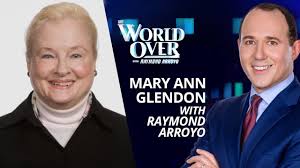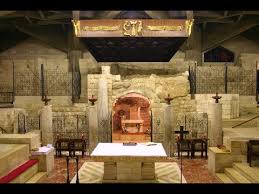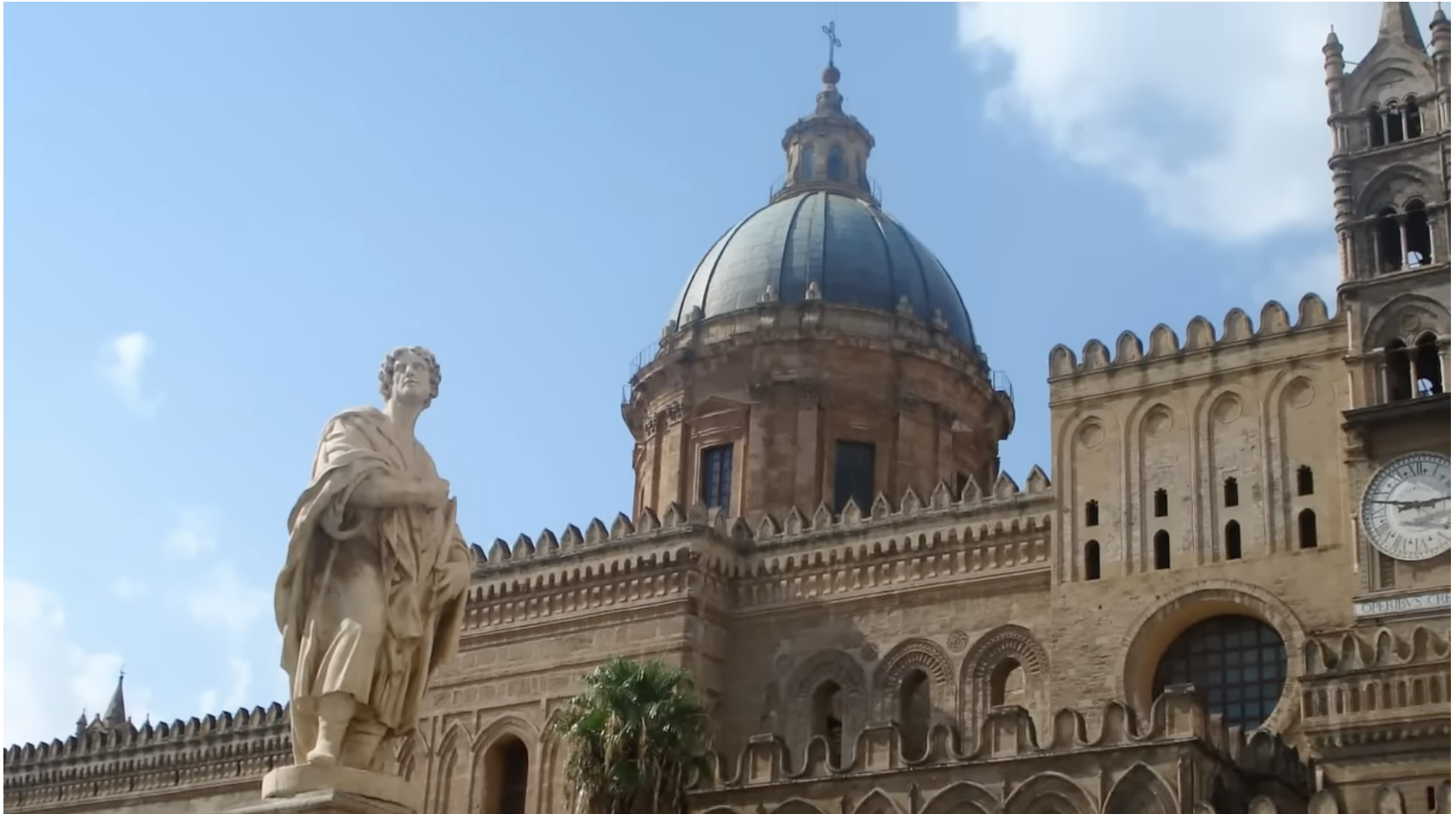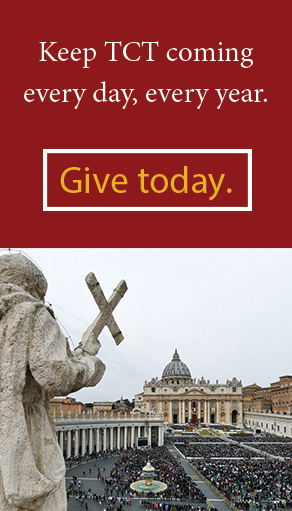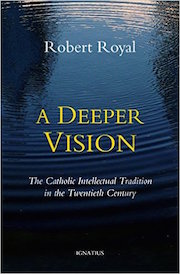St. Joseph was certainly not alive when Jesus began his public ministry. This, the tradition has always maintained, for four reasons.
First, after the public ministry begins, Joseph is never mentioned in the Gospels in connection with Jesus or Mary, or with the broader family of the “brothers” or more properly “cousins” of the Lord. There is even some suggestion in the way people refer to Joseph that he is no longer alive: “Isn’t this the son of the carpenter?” (Mt. 13:55)
Second, why would Jesus have conferred Mary to John, to take her into his house (Jn 19:27), if Joseph were still alive?
Third, Simeon’s prophecy of suffering – “a sword your soul too shall pierce” (Lk 2:35) – pertains only to Mary, not Joseph.
Fourth, it was most fitting that Joseph should leave the scene, before the Lord’s public ministry, so that when Jesus taught about “my Father” it would always be clear of whom he was speaking.
I find this list of reasons itself fascinating. I was a Protestant once, and, as a Protestant, I was convinced that the Gospel could have a much-needed sharpness in confronting “the world” only if Christians based their beliefs solely on Scripture, not on “mere human tradition.”
And yet what is the status of this truth, that “Joseph was not alive when Jesus began his public ministry?” It is not quite based on Scripture alone; and yet it is based on Scripture. Moreover, it is not a “mere human tradition.” Surely, it is a pious tradition, at least, that is, it is something shared and handed down among those who look at the life of the Lord with the eyes of faith.
As a Protestant, too, I had no coherent notion of authority in the Church. Thus, I could draw no distinction between what Christians are bound to believe as “of the faith” (de fide), and what we are free to believe because it is well-grounded and widely held among pious and thoughtful Christians.
As a Catholic, now, I can say that this truth – that Joseph died prior to the public ministry – is not de fide. And then that understanding frees me up to affirm it with just that force: I can defend it as true, and profitable to believe, while not implying that others are bound to believe it, if they are not persuaded by my reasons.
Of that list of reasons, the fourth is the most fascinating to me. Did Joseph appreciate it himself? Did he understand that it was better for him to depart from the world before Jesus entered upon the public stage? Fr. Gasnier in his great book of meditations, Joseph the Silent, thinks so: “Because he was Joseph, he realized too that his presence might become an obstacle rather than a help to Jesus. The world must not believe any longer that he was Jesus’ true father.”
If so, Joseph’s death takes on an interesting meaning.
To see why, consider a second question: About how old was Joseph when he died? If he was old when he was married, he would have been very old when he died. There are some ancient traditions, rooted in the apocryphal writings, that Joseph was an old man, previously married for over forty years, when he was espoused to Mary. St. Epiphanius places him at 90 years old! But his view was vigorously rejected by St. Jerome. And it is safe to say that fuller reflection in the Church over the centuries has sided with St. Jerome.
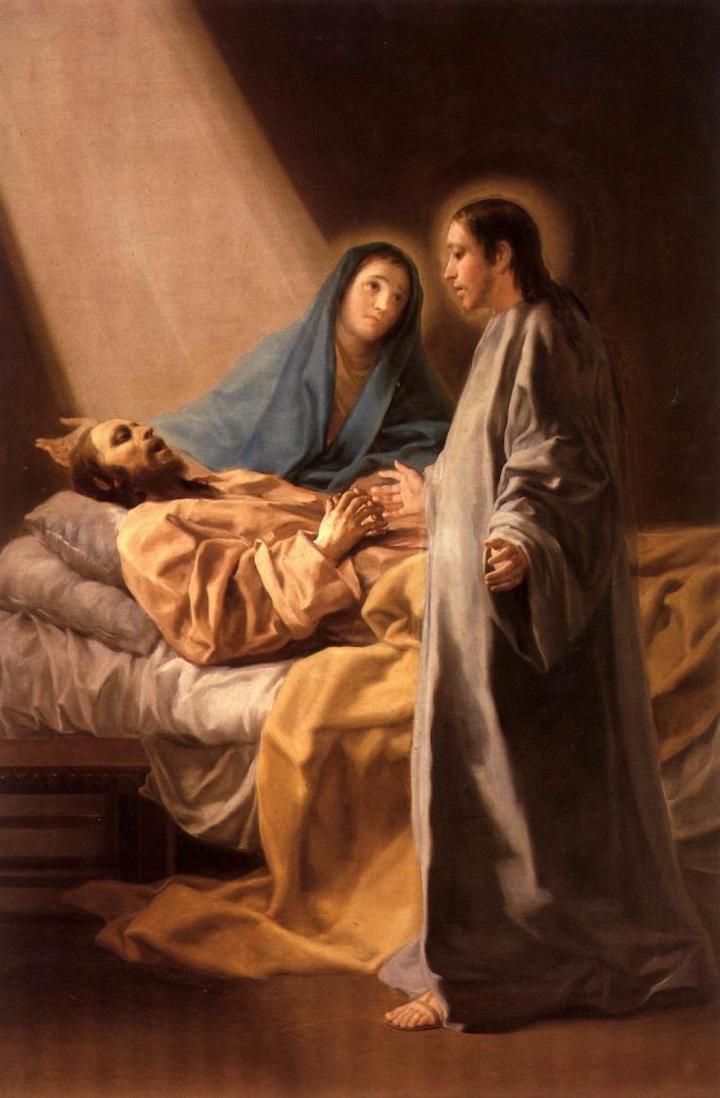
The better opinion, I think, which I accept, is that he was a young man when he married Mary. It was the custom then that men would aim to be married in their late teens. His devotion to virginity, his own and Mary’s, was rooted in the idealism of the young. No one would have supported the marriage of 90-year-old man to a teenage girl. And it is misguided to attribute his respect of Mary’s virginity to senility not virtue.
So let us suppose he was 20 when he married Mary: he would likely have been in his 40s when he died. That is to say, St. Joseph died an “early death,” even for those days. He did not die from old age and its generalized weakness, but (we exclude violence) from some definite affliction that took him away.
Now put these two thoughts together: Joseph realized that it was best for him to depart the scene; and he died as a relatively young man, accepting his death, at just that time, as sent by God.
And now I think we come to some remarkable results. The first is that we can understand the death of Joseph to be in its own mysterious way a participation, through foreshadowing, of the passion of the Lord – just like the death of John the Baptist, and the martyrdom of the Holy Innocents.
The second is that he offered up his life without yet seeing what the life of Jesus was for. Thus, his death was marked by tremendous faith. He did not hear the Sermon on the Mount. He did not see Jesus turn water into wine, heal lepers, or raise Lazarus. He did not see the Passion or the Resurrection.
The third is that the new life in Christ that he was chosen to witness was, exactly, the life of working alongside Jesus as friend, and living a domestic life with Mary. No wonder that, where Christian family life in its ordinariness has flourished, St. Joseph has been fervently invoked!
Finally, we can understand why popes have appointed St. Joseph for us at Patron of the Dying, because he is especially sensitive to our felt untimeliness of death: “O Lord, happily will I die at the moment, in the place, and in the way that you want.”
“Let me die as did glorious St. Joseph, accompanied by Jesus and Mary, pronouncing those sweetest of names, which I hope to extol for all eternity.”
*Image: The Death of St. Joseph by Francisco de Goya, 1787 [Royal Monastery of Saint Joachim and Saint Anne, Valladolid, Spain]


